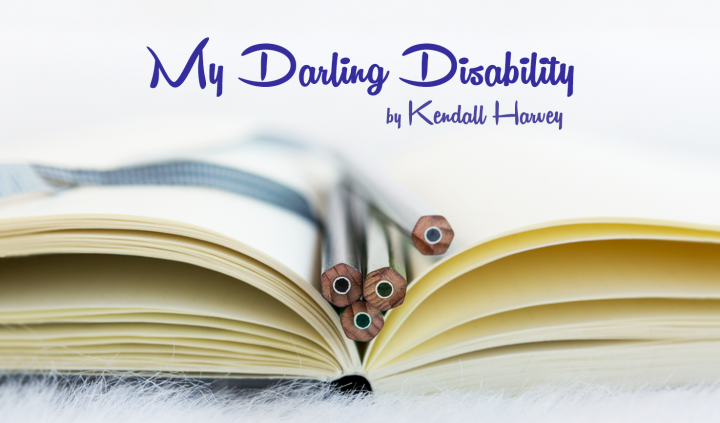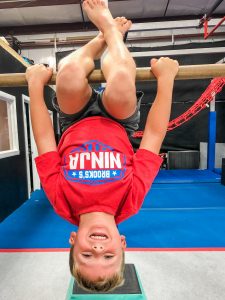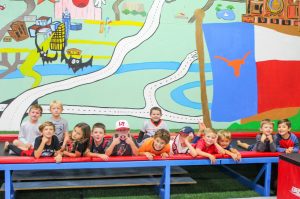I Feel Both Pride and Envy While Parenting With Friedreich’s Ataxia
Written by |

I am beyond blessed to be “Mom” to my 6-year-old son, Brooks, and my 3-year-old daughter, Collins. They are wonderful, healthy, happy, energetic, smart, and funny.
I feel a mix of emotions when I watch them run and play. I am so proud of them that it overwhelms me at times. But as a Friedreich’s ataxia (FA) patient whose symptoms have progressed to the point where I depend on a walking aid, I also am envious. Mostly, I am happy for my kids’ health and abilities, but I am ashamed to admit that I feel a bit jealous and resentful of FA.
When my husband, Kyle, and I were considering having children, Kyle was tested to determine whether he was a carrier for the FA gene. He isn’t, which assured us that our kids would be symptomless carriers and not FA patients. As a result, when Collins trips while walking, I don’t immediately think, “Oh goodness, her FA is already starting.”
I take comfort in knowing our kids won’t have to endure the cruel progression of FA. I rest easy knowing that their precious bodies won’t betray and frustrate them every minute of the day because of FA.
Since he was 3, Brooks has loved playing baseball. He is a joy to watch on the field. His happiness is tangible, and his passion contagious. Outside of practice and organized games, every spare minute is consumed with baseball. He’ll arrive home from kindergarten, store his backpack, then pick up his glove and throw the ball to himself. He is obsessed.
I am so proud of him as I cheer him on from the sidelines. It’s exciting to watch him perform and to see his capable body rise to the challenge of Little League. But I battle feelings of jealousy when I see the dugout moms scrambling around to get the kids’ helmets on, line them up in the batting order, or get them ready to take their positions on the field. Before FA, I always thought it would be me helping them.
Brooks turned 6 this week, and we had a fun “Ninja Warrior” themed birthday party for him at a local gym with a Ninja Warrior center. Brooks and his friends had a blast running, jumping, climbing, and sliding on all of the obstacles and trampolines.
I sat on the sidelines with my walker so that I could pop up and pass out cupcakes, party favors, drinks, and whatever else was required of the hostess. As I was chatting with the other parents and keeping an eye on the craziness, envy kept creeping into my thoughts. I could vividly remember what it felt like to run full-speed and fly into a foam pit. I could remember practicing my back handsprings and flips on the trampoline during cheerleading practice. And now I can’t even walk from one point to another without help. I was so jealous of those kids.
I was also envious of my husband, who ran around with Brooks’ friends at the birthday party. When he wowed them with a backflip on the trampoline, I thought, “That should be me doing that.” When the other moms rescued their kids from monkey bars or showed them where to put their feet while climbing new towers, I was envious of their ease of movement and ability to connect with their kids in that manner.
I’ve been struggling with these conflicting feelings since I found out I was pregnant with Brooks in 2014. I was teaching him to walk as my own walking abilities deteriorated. He became more sure-footed and adventurous as I became increasingly unsteady.
I became dependent on my walker when Collins was 16 months old and exploring her newfound freedom. I celebrated their milestones while simultaneously mourning my disease progression. I swelled with pride at their delight in mastering new feats and then cried myself to sleep, overwhelmed by my physical defeat.
They say that youth is wasted on the young, but I passionately disagree. What better time is there to be energetic, fearless, and carefree than when you’re a child? I think the young cherish and use these gifts in the best way — they have fun! I think adults would just hoard and try to capitalize on the gifts of youth because we know their fleeting value.
I don’t think youth is wasted on the young, but occasionally, I feel that ability is taken for granted by the able-bodied. I am certain I will have these conflicting feelings my entire life. But despite these fleeting feelings, I can continue to strive for a full life despite disability, even if it means occasionally living vicariously through my kids and my friends.
***
Friedreich’s Ataxia News is strictly a news and information website about the disease. It does not provide medical advice, diagnosis or treatment. This content is not intended to be a substitute for professional medical advice, diagnosis, or treatment. Always seek the advice of your physician or another qualified health provider with any questions you may have regarding a medical condition. Never disregard professional medical advice or delay in seeking it because of something you have read on this website.The opinions expressed in this column are not those of Friedreich’s Ataxia News or its parent company, Bionews, and are intended to spark discussion about issues pertaining to Friedreich’s ataxia.





Leave a comment
Fill in the required fields to post. Your email address will not be published.